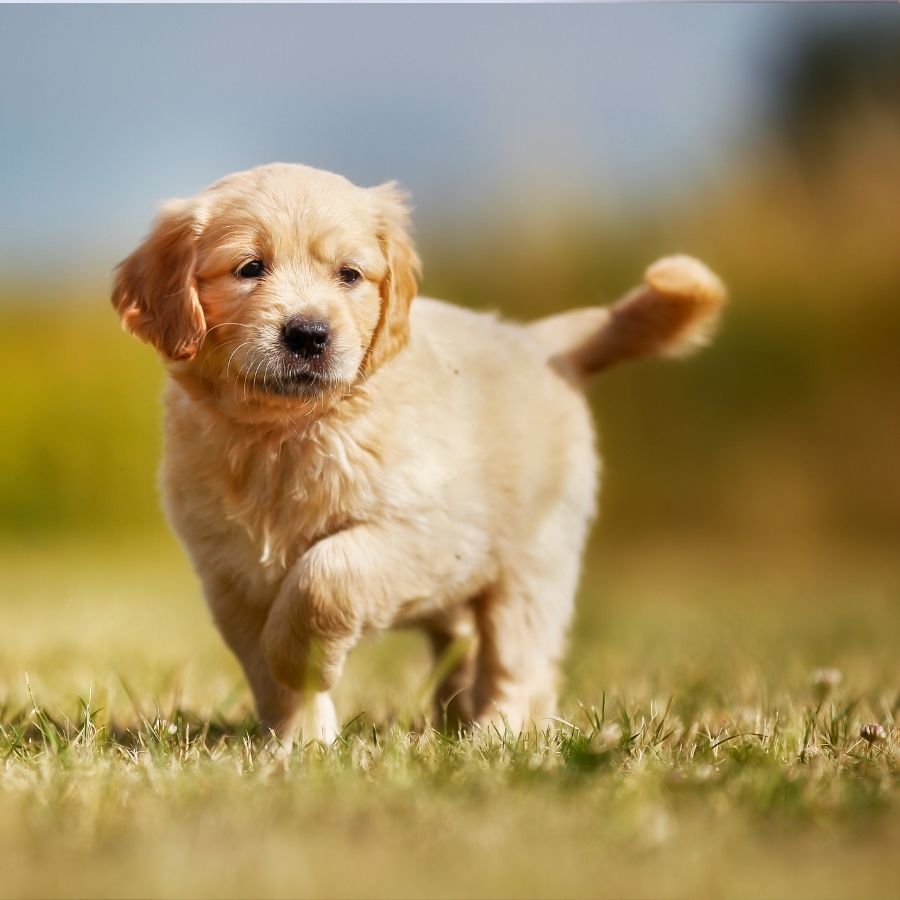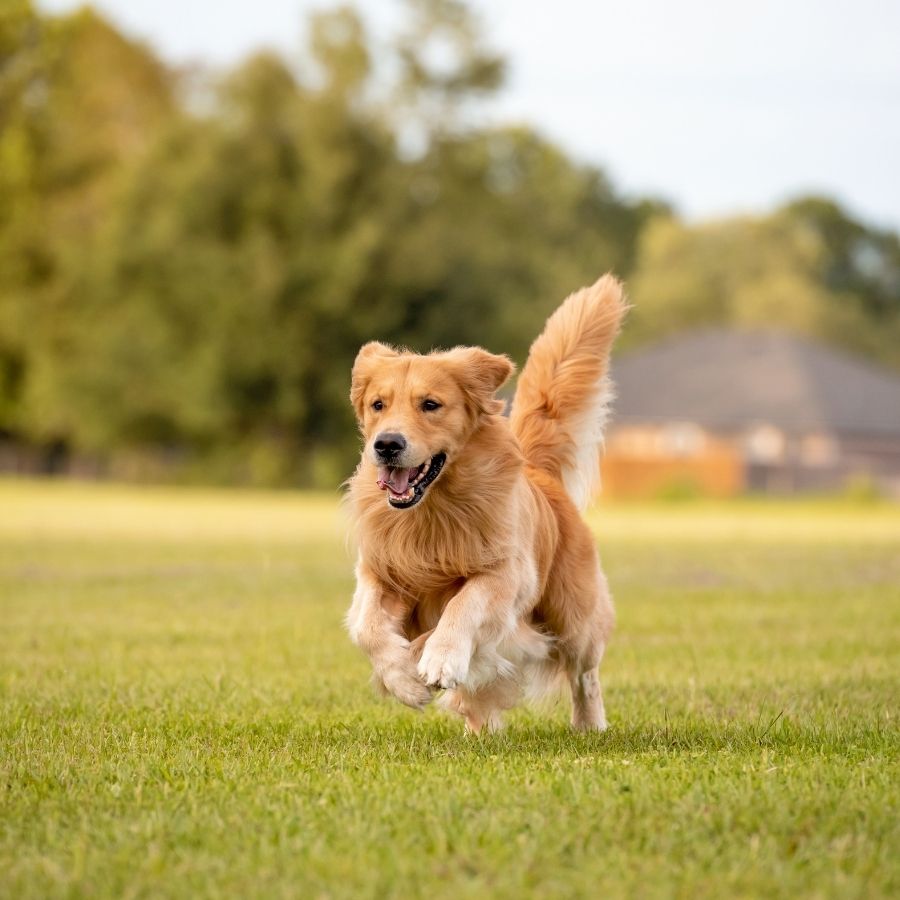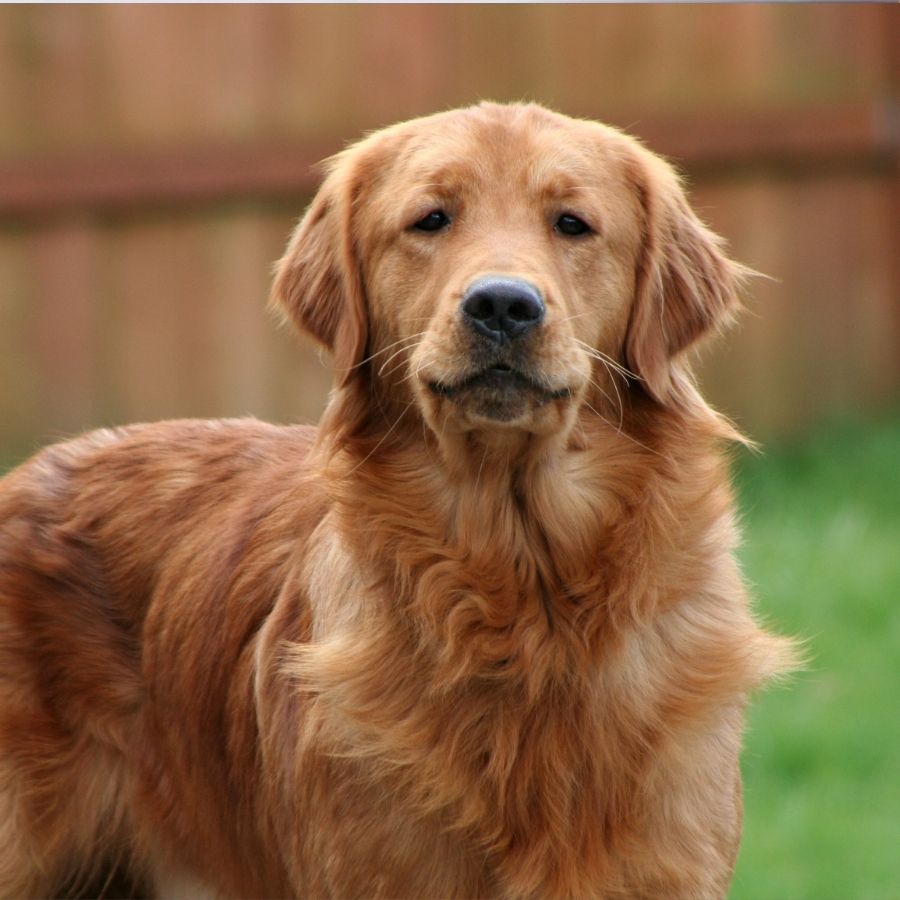Welcome to our complete guide to taking care of and training your Golden Retriever! Whether you’re just starting as a Golden Retriever owner or you’ve had one for a while, this guide has everything you need to know.
We’ll cover things like grooming and teaching your dog how to behave. So, let’s learn together how to make sure your Golden Retriever is happy and healthy!
How to Care For Your Golden Retriever Puppy

Caring for your Golden Retriever puppy involves a combination of providing for their basic needs, attending to their physical and emotional health, and guiding them through their developmental stages. Here’s a detailed guide to help you care for your Golden Retriever puppy:
- Nutritious Diet: Golden Retriever puppies require a balanced and nutritious diet to support their rapid growth and development. Choose a high-quality puppy food that is formulated to meet their specific nutritional needs.
Look for foods that contain high-quality protein sources, essential vitamins and minerals, and omega-3 fatty acids for healthy skin and coat. Feed your puppy according to the feeding guidelines on the food packaging, and divide their daily food allowance into several small meals to prevent overeating and aid digestion.
- Regular Exercise: Golden Retriever puppies are naturally active and energetic, so they must have plenty of opportunities for exercise and play. Aim for at least 30 minutes to an hour of exercise each day, including activities like walks, playtime in the backyard, and interactive games such as fetch or tug-of-war. Be mindful not to over-exercise your puppy, especially during the early months when their joints are still developing.
- Socialization: Early socialization is crucial for Golden Retriever puppies to help them grow into confident and well-adjusted adult dogs. Introduce your puppy to a variety of people, animals, and environments in a positive and controlled manner. Take them to puppy socialization classes, arrange playdates with other vaccinated dogs, and expose them to sights, sounds, and smells to build their confidence and prevent fear-based behaviors later in life.
- Training and Obedience: Start training your Golden Retriever puppy when you bring them home. Begin with basic commands like sit, stay, come, and down, using positive reinforcement techniques such as treats, praise, and toys as rewards for good behaviour. Keep training sessions short, fun, and consistent, and be patient with your puppy as they learn and grow. Consider enrolling in puppy obedience classes to receive guidance and support from a professional trainer.
- Grooming: Golden Retrievers have a dense double coat that requires regular grooming to keep it clean and healthy. Brush your puppy’s coat at least a few times a week to remove loose fur, prevent mats and tangles, and distribute natural oils throughout the coat.
Bathe your puppy as needed, using a mild dog shampoo formulated for puppies to avoid stripping their skin of essential oils. Trim your puppy’s nails regularly to prevent them from becoming too long and causing discomfort, and clean their ears gently with a veterinarian-recommended ear cleaner to prevent infections.
- Veterinary Care: Schedule regular veterinary check-ups for your Golden Retriever puppy to monitor their health and ensure they are up-to-date on vaccinations and preventive medications. Your veterinarian can also guide parasite control, dental care, and nutrition tailored to your puppy’s needs. Be sure to promptly discuss any concerns or questions you have about your puppy’s health or behaviour with your veterinarian.
- Love and Affection: Finally, shower your Golden Retriever puppy with plenty of love, affection, and attention. Spend quality time bonding with your puppy through cuddles, playtime, and positive interactions.
Offer praise and encouragement when they exhibit desired behaviors, and be patient and understanding when they make mistakes or require additional guidance. Building a solid and loving relationship with your puppy is essential for their emotional well-being and overall happiness.
How to Train Your Golden Retriever

Training your Golden Retriever puppy is an essential part of fostering good behavior, obedience, and a strong bond between you and your furry companion. Here’s a detailed guide to help you train your Golden Retriever puppy effectively:
- Start Early and Be Consistent: Begin training your Golden Retriever puppy as soon as you bring them home. Puppies have a remarkable capacity for learning from a young age, so starting early allows you to establish good habits and prevent unwanted behaviours from developing.
Consistency is vital in training, so use the same commands and cues consistently, and be sure to reward desired behaviours every time they occur. This helps your puppy understand what is expected of them and reinforces their training.
- Use Positive Reinforcement: Positive reinforcement is the most effective and humane training method for Golden Retrievers. Use treats, praise, and rewards to reinforce good behavior and motivate your puppy to repeat it.
When your puppy obeys a command or exhibits a desired behavior, such as sitting or coming when called, immediately praise them enthusiastically and offer a tasty treat as a reward. Positive reinforcement creates a positive association with obedience and makes training enjoyable for your puppy.
- Keep Training Sessions Short and Fun: Golden Retriever puppies have short attention spans, so keep training sessions brief and engaging. Aim for sessions that last no more than 10-15 minutes at a time to prevent your puppy from becoming bored or overwhelmed.
Make training fun by incorporating games, toys, and interactive activities. By keeping training sessions short and enjoyable, you’ll keep your puppy’s attention focused and make learning more effective.
- Focus on Basic Commands: Start with teaching your Golden Retriever puppy basic commands such as sit, stay, come, and down. These commands are fundamental to your puppy’s training and will form the basis for more advanced training exercises later on. Break down each command into small, manageable steps, and be patient as your puppy learns. Practice each command regularly in different environments and situations to reinforce their understanding and obedience.
- Socialize Your Puppy: Socialization is critical for Golden Retriever puppies to develop into well-adjusted and confident adult dogs. Expose your puppy to a variety of people, animals, sounds, and environments from a young age to help them feel comfortable and confident in different situations. Arrange playdates with other vaccinated dogs, take walks in various neighborhoods, and introduce your puppy to new experiences in a positive and controlled manner. Proper socialization will help prevent fear-based behaviors and ensure that your puppy grows up to be a friendly and sociable companion.
- Be Patient and Positive: Training a Golden Retriever puppy requires patience, positivity, and understanding. Avoid using punishment or harsh training methods, as these can damage your puppy’s trust and confidence. Instead, remain patient and positive, and celebrate your puppy’s successes along the way. If your puppy makes a mistake or struggles with a particular command, avoid getting frustrated and instead focus on providing gentle guidance and encouragement.
- Seek Professional Help if Needed: If you’re having difficulty training your Golden Retriever puppy or encountering behavior problems that you’re not sure how to address, don’t hesitate to seek professional help. A qualified dog trainer or behaviorist can provide personalized guidance and support to help you and your puppy succeed. They can offer valuable insights and techniques to address specific training challenges and ensure that your puppy develops into a well-behaved and obedient adult dog.
What Is A Good Routine For A Golden Retriever?
Establishing a good routine for your Golden Retriever is essential for their physical and mental well-being. Here’s a suggested daily routine that you can adapt to suit your dog’s individual needs and your lifestyle:
- Morning Walk or Exercise (6:00 – 7:00 AM): Start the day with a brisk walk or vigorous play session to help your Golden Retriever burn off excess energy and stimulate their mind. Aim for at least 30 minutes to an hour of exercise to keep your dog physically fit and mentally stimulated.
- Breakfast and Bathroom Break (7:00 – 8:00 AM): After exercising, feed your Golden Retriever breakfast and give them a bathroom break. Provide access to fresh water at all times, and ensure that your dog has ample time to relieve themselves before the next activity.
- Training and Mental Stimulation (8:00 – 9:00 AM): Spend some time engaging in training exercises and mental stimulation activities with your Golden Retriever. Teach them new tricks, practice obedience commands, or use puzzle toys to challenge their problem-solving skills. Mental stimulation is just as important as physical exercise for keeping your dog happy and fulfilled.
- rest (9:00 – 11:00 AM): Allow your Golden Retriever to rest and relax in a comfortable spot in your home. Provide a cosy bed or designated area where they can unwind and take a nap. Dogs need plenty of rest to recharge their batteries and recover from physical activity.
- Midday Walk or Playtime (11:00 AM – 12:00 PM): Take your Golden Retriever for another walk or engage in a play session during the midday hours. This break provides an opportunity for your dog to stretch their legs, get some fresh air, and enjoy some quality time with you.
- Lunch and Bathroom Break (12:00 – 1:00 PM): Feed your Golden Retriever lunch and give them another opportunity to relieve themselves. Stick to a regular feeding schedule to help regulate your dog’s digestion and prevent stomach upset.
- Quiet Time (1:00 – 3:00 PM): Allow your Golden Retriever to have some quiet time to rest and relax during the afternoon hours. This downtime is essential for preventing overstimulation and helping your dog recharge for the rest of the day’s activities.
- Afternoon Walk or Exercise (3:00 – 4:00 PM): Take your Golden Retriever for another walk or engage in another round of playtime to break up the afternoon and provide additional exercise and stimulation.
- Dinner and Bathroom Break (5:00 – 6:00 PM): Feed your Golden Retriever dinner and give them another opportunity to relieve themselves before settling in for the evening.
- Evening Walk or Playtime (6:00 – 7:00 PM): Enjoy one last walk or play session with your Golden Retriever in the early evening hours to help them wind down and expend any remaining energy.
- Relaxation and Bonding Time (7:00 – 9:00 PM): Spend the evening relaxing with your Golden Retriever and bonding together as a family. Whether it’s cuddling on the couch, playing games, or practising training exercises, this time allows you to strengthen your bond and reinforce your relationship with your dog.
- Bedtime Routine (9:00 – 10:00 PM): Establish a bedtime routine to help your Golden Retriever wind down and prepare for sleep. Provide a comfortable sleeping area, dim the lights, and engage in calming activities to signal that it’s time to rest. Stick to a consistent bedtime to help your dog develop healthy sleep habits.
Conclusion
In summary, this comprehensive guide equips Golden Retriever owners with the knowledge and tools for nurturing healthy, well-behaved companions. From puppyhood through adulthood, focusing on nutrition, exercise, grooming, socialization, and positive reinforcement training ensures a strong bond and a fulfilling relationship with these beloved dogs.
